Latest News
13 February 2023
Traffic flow on A4 Leiden improved by driving advice

Will traffic flow improve when motorists are assisted in their choice of main or parallel lanes? The answer is yes. Rijkswaterstaat, TU Delft and Zuid-Holland Bereikbaar conducted a pilot project in collaboration with Flitsmeister in the past months.
13 February 2023
Research for responsible AI in the military domain: REAIM2023

Delft AI and ethics researchers lead academic forum of REAIM conference 15 and 16 February.
10 February 2023
Ir. Kemo Agović appointed as new director of I&IC

Agović will succeed Paul Althuis as of April 1st 2023, who has led TU Delft's valorisation activities since 2005.
02 February 2023
Delft design method maps a route through the confusion for cancer patients
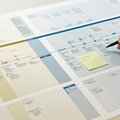
Cancer patients can often find it difficult to maintain a good overview of their situation. This is why Ingeborg Griffioen, a Delft industrial designer, developed the Metro Mapping design method for patients and care providers, to enable them to reach better shared decisions about treatment. Experts in design engineering from TU Delft are now joining forces with medical professionals and researchers from Erasmus MC and the LUMC and the Panton design agency to further develop and apply Griffioen’s method in the Netherlands, Denmark and Spain.
01 February 2023
Repair, Reuse, Reduce, Recycle: these 4 experts help make the circular economy a reality
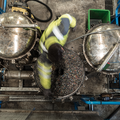
The Dutch economy must be fully circular by 2050 to help stop climate change. But our society actually uses more disposable plastic packaging and we use furniture and garments for shorter and shorter periods of time. This was stated by the Netherlands Environmental Assessment Agency's biennial report on the circular economy showed last week. Within Europe, the Netherlands does lead the way when it comes to recycling, but we still do so largely "low-quality," according to the report. We turn plastic packaging into garden benches or roadside posts after recycling, for example, but not often enough our recycling leads to new plastic packaging.
31 January 2023
ERC Consolidator grants for TU Delft researchers
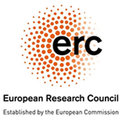
TU Delft researchers Hayley Hung (EEMCS) and Kunal Masania (AE) have been awarded a Consolidator Grant from the European Research Council (ERC). These European grants are given to ambitious "groundbreaking research projects," with funding per grant of up to €2 million with a duration of five years.
31 January 2023
Extra Earth observation studies to better understand effects of climate change
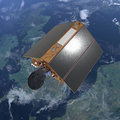
The NWO honoured eight TU Delft research projects for Earth observation and planetary research. Several studies will start within the CEG faculty that will help us better understand the Earth's climate system.
30 January 2023
Balancing water, food and energy to drive sustainable development
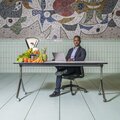
Water, for drinking, sanitation, irrigation and clean energy, plays a crucial role in the transition to a more sustainable world. In the EPIC Africa project, assistant professor in Water & Control Edo Abraham explores how data collection, mathematical models and a closer cooperation between countries and sectors can improve water management and the planning of energy systems. The aim is to achieve an optimal and fairer utilisation of increasingly scarce water and land in parts of Sub-Saharan Africa.
27 January 2023
ICAI Lab 'AI for Energy Grids' kicks off new series of TU Delft AI for Energy & Sustainability Think Tanks

The ICAI Lab 'AI for Energy Grids' is one of 17 new ICAI labs recently launched as part of the NWO LTP ROBUST programme. The lab will research the application of AI to distribution networks. It will combine Alliander's considerable industrial capabilities with the academic strength of TU Delft, Twente University, Radboud University and the HAN University of Applied Sciences. The lab represents an excellent fit with TU Delft's ambitions to accelerate the energy transition.
26 January 2023
Cold ice shelves Antarctica more vulnerable than previously thought
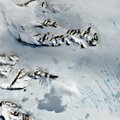
Some cold ice shelves in Antarctica, which researchers initially thought would remain stable over the coming centuries, turn out to be vulnerable in the event of further global warming. This conclusion results from a study led by Utrecht University and on which Stef Lhermitte and Bert Wouters from Delft University of Technology contributed.
